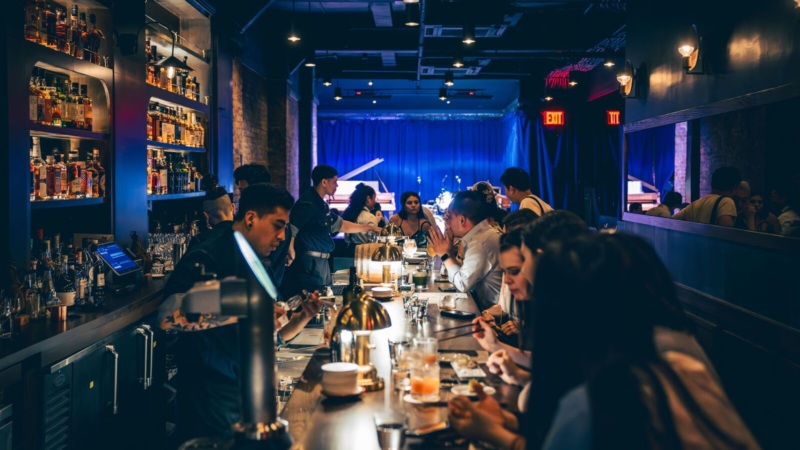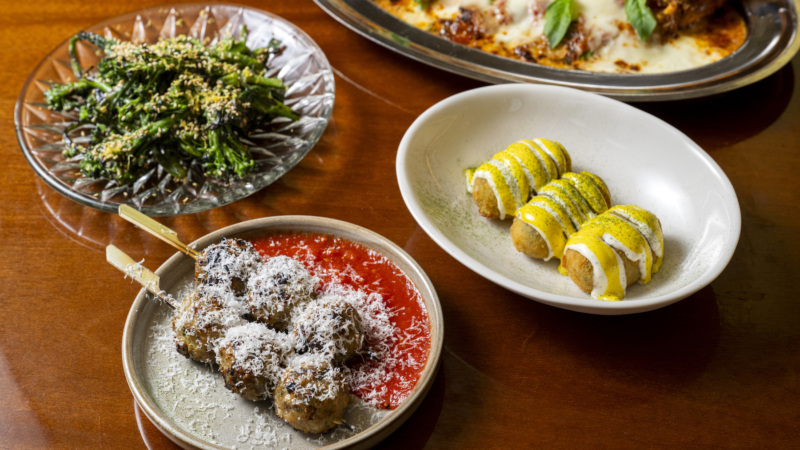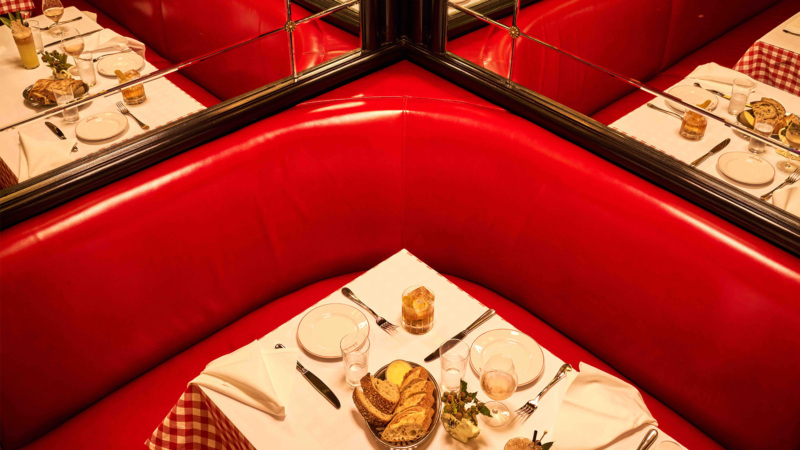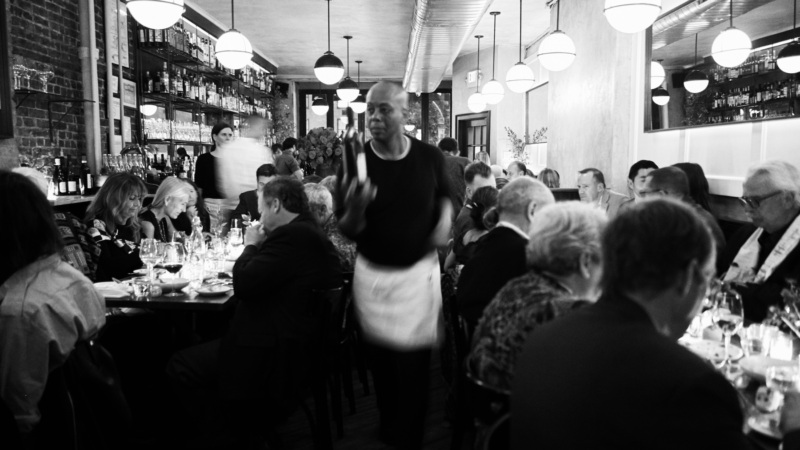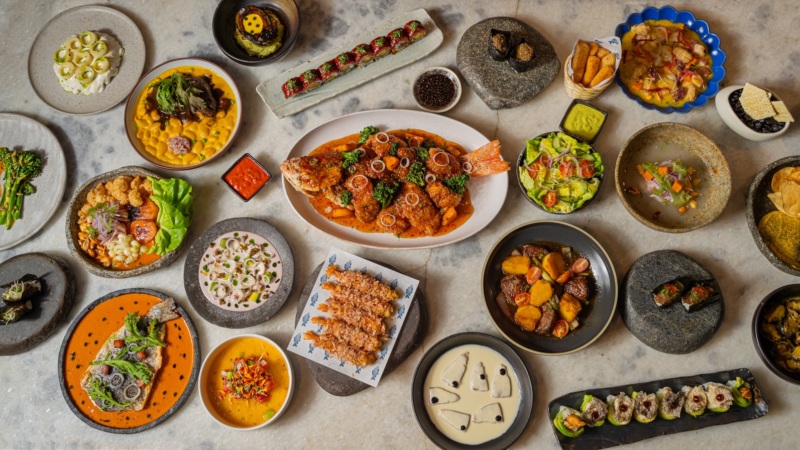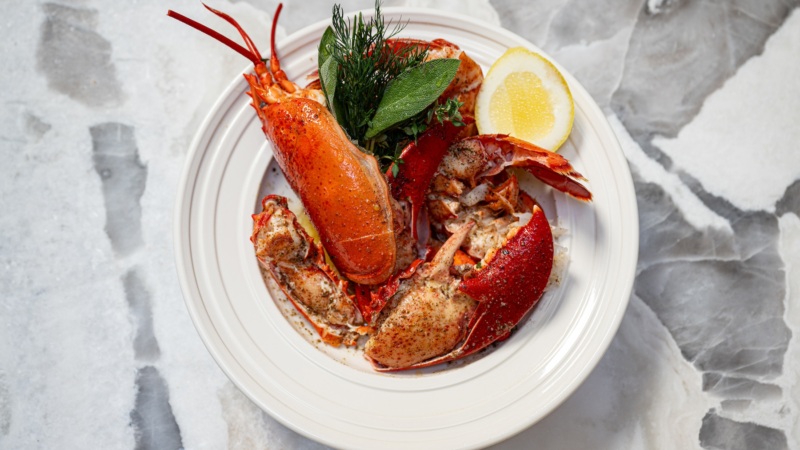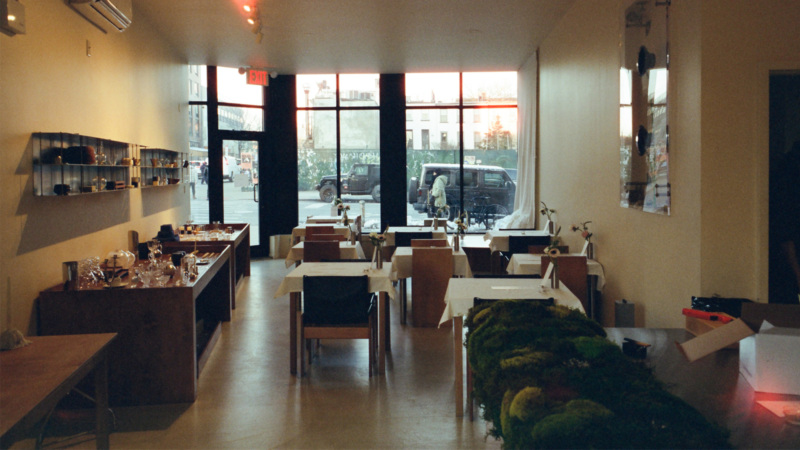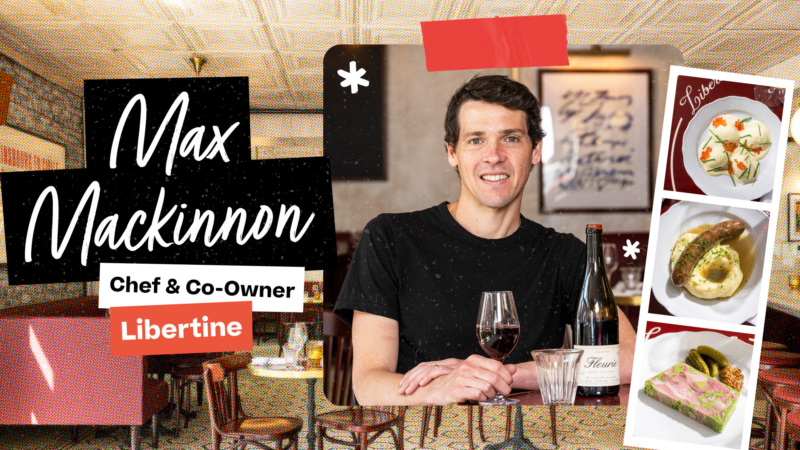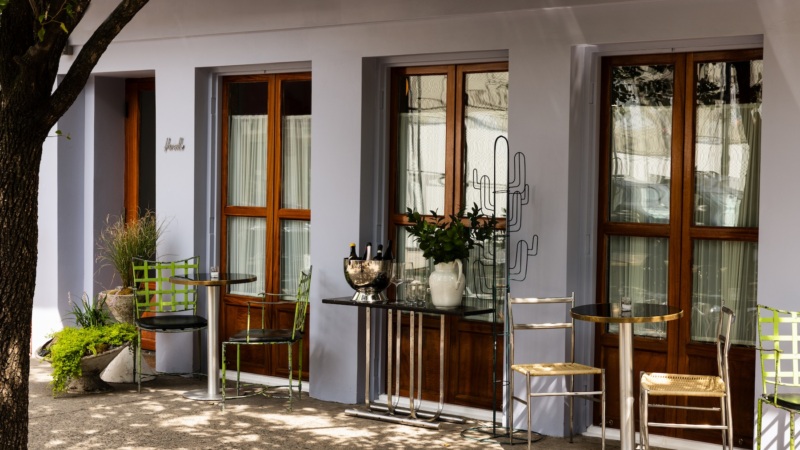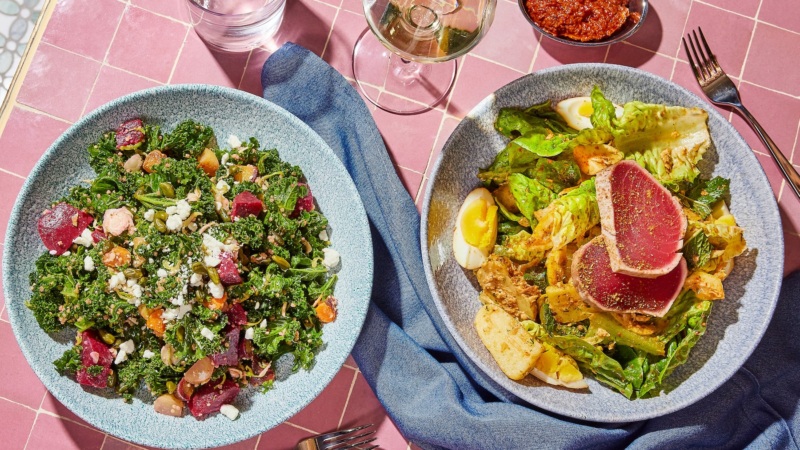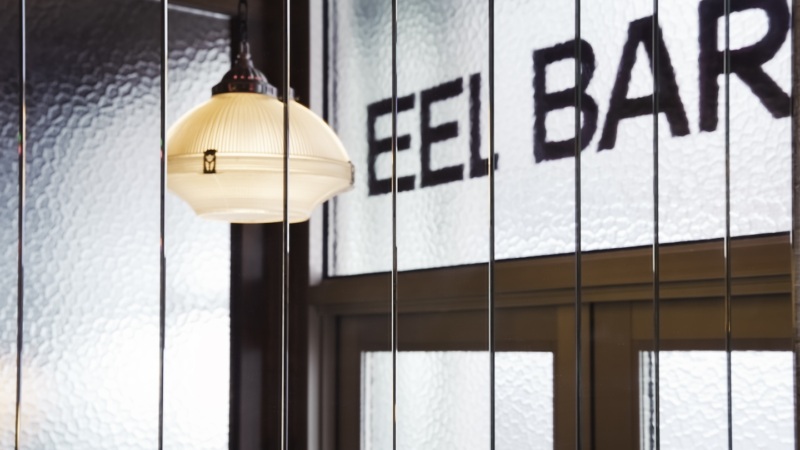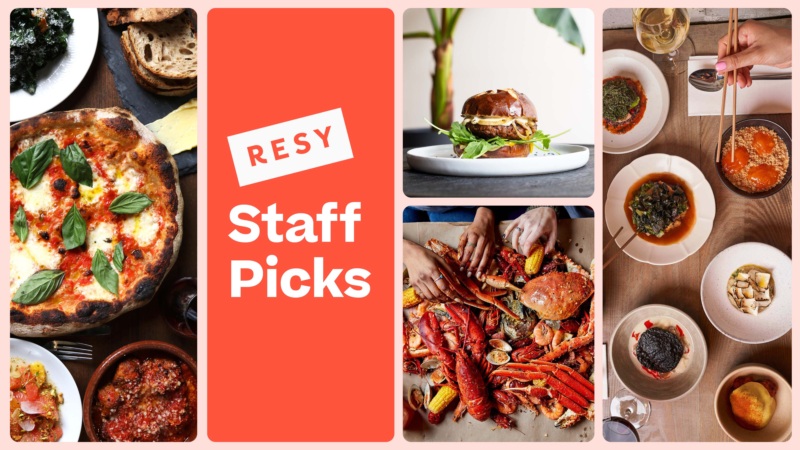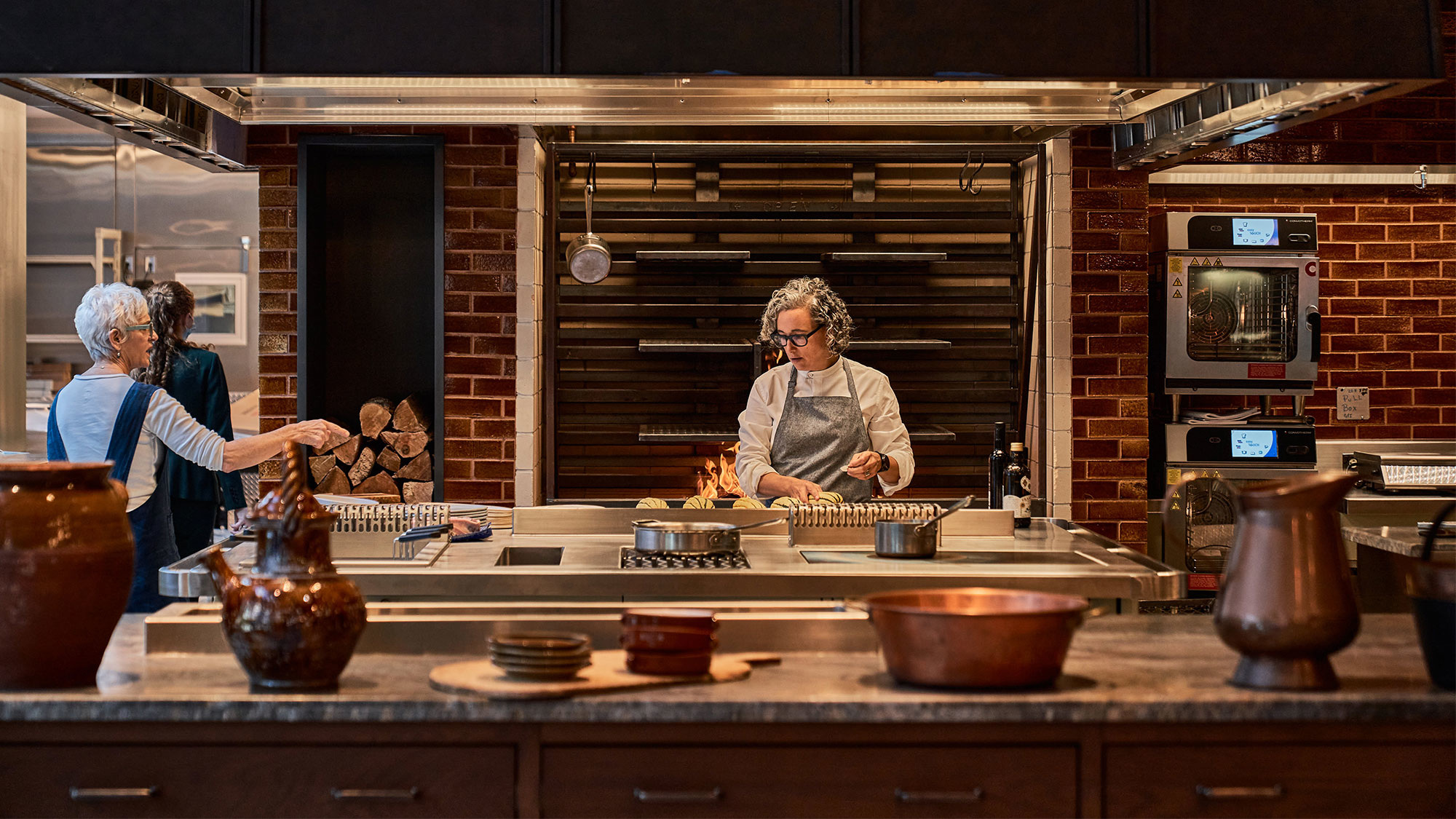
Hillary Sterling on Building a More Inclusive Restaurant Industry for Everyone
Chef Hillary Sterling is very busy these days. When she’s not leading the kitchen at her critically acclaimed restaurant, Ci Siamo, she’s tending to her newborn — and also constantly thinking about how she can create a more inclusive restaurant industry where everyone, regardless of gender or sexual orientation, can grow and thrive.
Later this month, on June 27, Sterling and her team at Ci Siamo are hosting an intimate meal as part of Resy’s Women of Food dinner series. We recently caught up with her to ask her about the upcoming dinner, and also what she’d like to see more of in the restaurant industry, too.
Note: This interview has been edited for length and clarity.
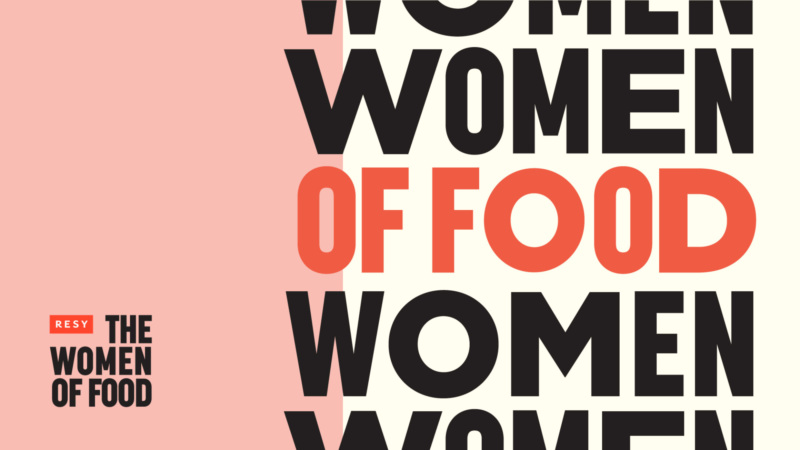
- The Resy Guide to the Women-Owned Restaurants of New York
- ‘Being a Woman Has Made Me More Innovative’: Alex Raij on the Gender Gap in the Restaurant Industry
- Amanda Cohen Has Pioneered So Much. Why Aren’t We Listening to Her?
- All Kate Telfeyan Wants Is a Better Restaurant Industry
- All Women of Food Coverage
Resy: How are you doing, chef?
Sterling: I’m OK. We are busy. We are growing. We are trying to keep up with all of these things. It’s tiring and it’s rewarding. It’s exciting.
My wife and I just had a baby three weeks ago and I can tell you how that’s going.
We are 7 months old [as a restaurant] and we are learning how to be a 7-month-old restaurant and learning how to really run the restaurant. It’s an animal — it’s going to keep growing, and we have to figure out what to do with that.
I take it you must be feeling more sleep deprived than usual these days.
I’ve been working for a couple days and then I’m going to take the weekend off again, but I got home last night from an event, and I got into bed and then I was awake again. It’s a completely different feeling than being tired and working. It’s kind of fun and crazy all at the same time. You never know what his mood will be, and I leave it up to my wife — she’s the really amazing person in the relationship right now, navigating someone’s life in her hands every day.
Can you tell us about your Women of Food dinner for Resy?
I’m excited to have everyone here to do this dinner and bring all these people together. We’re starting with our focaccia, and then we will have a rigatoni with tomato and buffalo butter — which is usually served as a tagliatelle on the menu. It’s the quintessential Ci Siamo dish: just three ingredients and all those layers that went into those ingredients. It’s taking very few things and treating them with honor and respect and drawing out all the flavors in there. The act of simplicity is so hard but also so fun at the same time.
That tomato sauce is a Marcella Hazan dish. We have a joke in my house, that on my first date with my wife, she asked me if I thought Marcella uses too much butter in her tomato sauce. My wife works in cheese but that she just knew this little detail, I was like, “Who are you?!” I was so blown away. Our thank-you favors for our wedding were Marcella Hazan’s tomato sauce.
So, do you think she uses too much butter in her tomato sauce?
[Laughs] I do think she uses too much butter in her tomato sauce. While I was building this menu, I was almost struggling with this because there were so many things I wanted to do — I wanted to draw out all these flavors that I wanted to eat again, or honor somebody. But yes, that dish is my complete ode to my wife and Marcella Hazan. Butter is great in tomato sauce, but maybe not as much butter as Marcella uses.
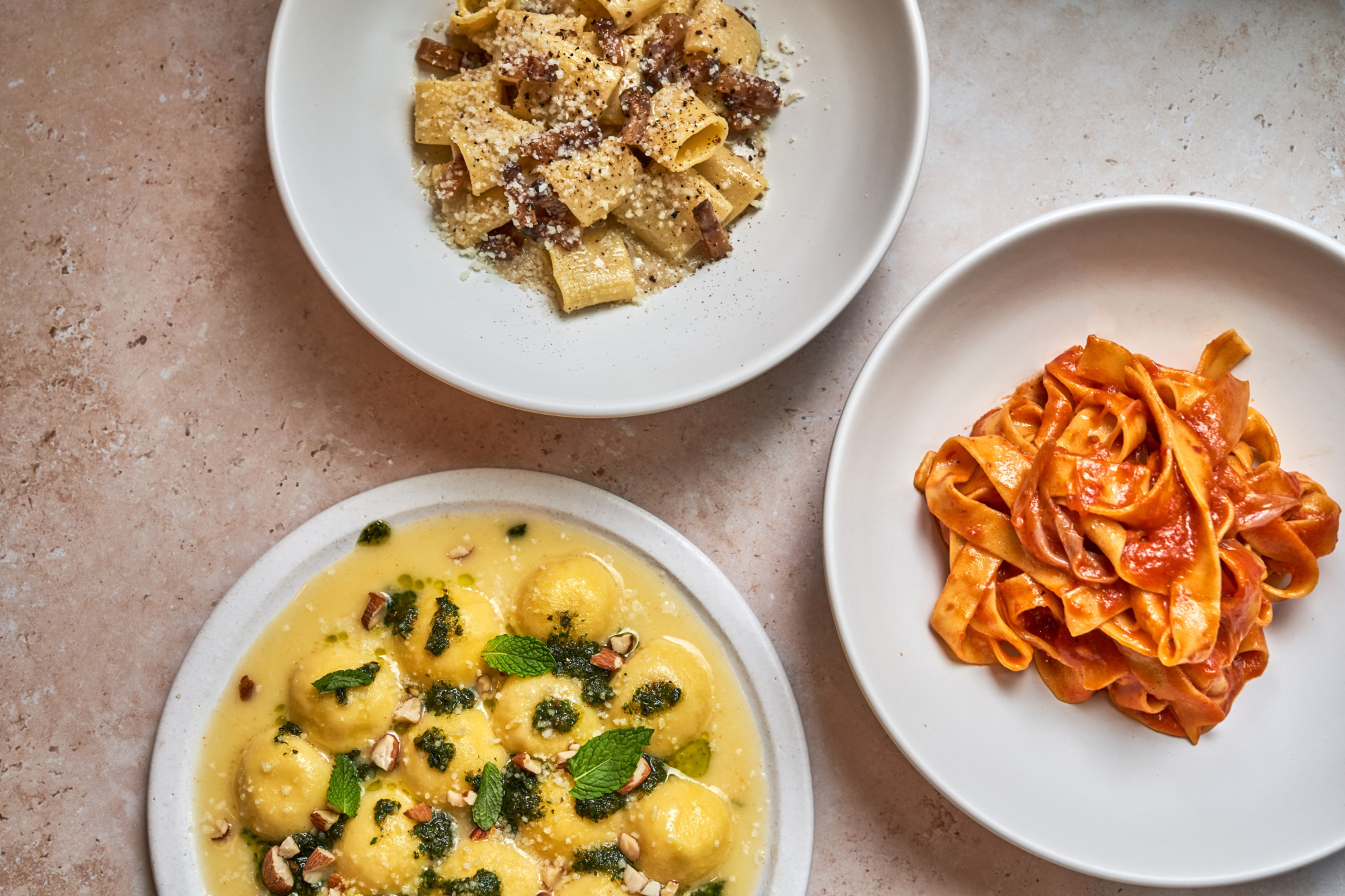
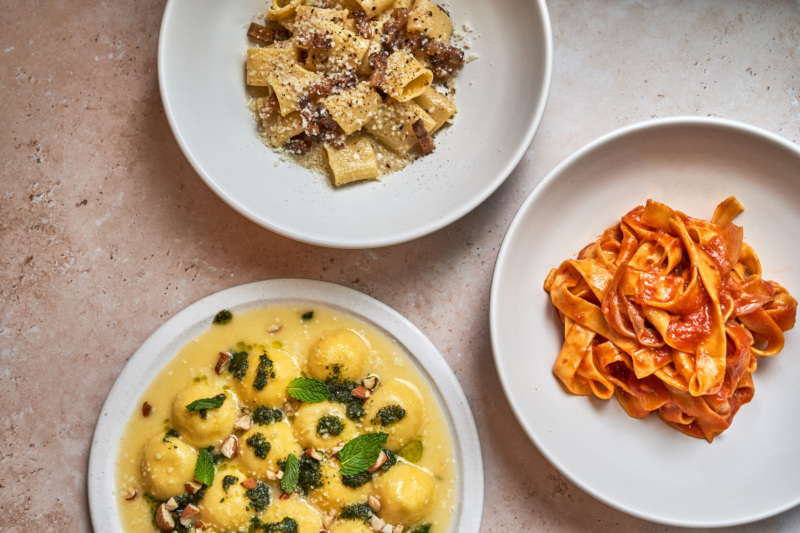
What else is on the menu for the dinner?
I took so much inspiration from women for this menu. Those chefs really inspire me and motivate me to make dishes better with less ingredients. On the regular menu, for instance, I’ve got this trout, and the trout is an ode to Zuni Café [and Judy Rodgers in San Francisco]. It’s a little Sicilian and a little Zuni Café. It’s the bread salad that comes with the famous chicken there — you have to be prepared to wait 60 minutes for that chicken. But it’s really for the bread salad with pine nuts and currants, so I wanted to create this smoky fish dish with a side sauce of chiles — a little Thai-inspired but my Italian version of it — what would go great with this? What goes with a roasted protein? I was inspired by that salad from Zuni; we do it with confit onion, pine nuts saffron, raisins, and yogurt.
[For the Women of Food dinner] we’ve got a braised lamb with zucchini for the summer. I think it’s just a way of utilizing whole animals, using all the parts of a lamb that are sometimes forgotten. We roast and marinate them and all the nasty bits get rolled out and then we put them all back together and sear it, and then we add a celery pesto with pickled celery and sesame seeds. It’s inspired by North Africa, the Sardinia/Corsica side of Italian food. There are so many sheep — more sheep than people — in Sardinia
For dessert, we have a lemon torta with olive oil and meringue, from [Ci Siamo’s pastry chef] Claudia Fleming. I totally was nibbling on a frozen lemon torta bite just this morning. Working with Claudia was really amazing. This project was already incredible enough and then I got to spend six months working with Claudia on it. I couldn’t have asked for a better partner to work on this with. Sometimes, you want to add that extra ingredient, and it was great to have someone to bounce ideas off of. That was really exciting for us.
Ci Siamo is run by women who bring such a wealth of experience to the table, including our general manger, Megan Sullivan.
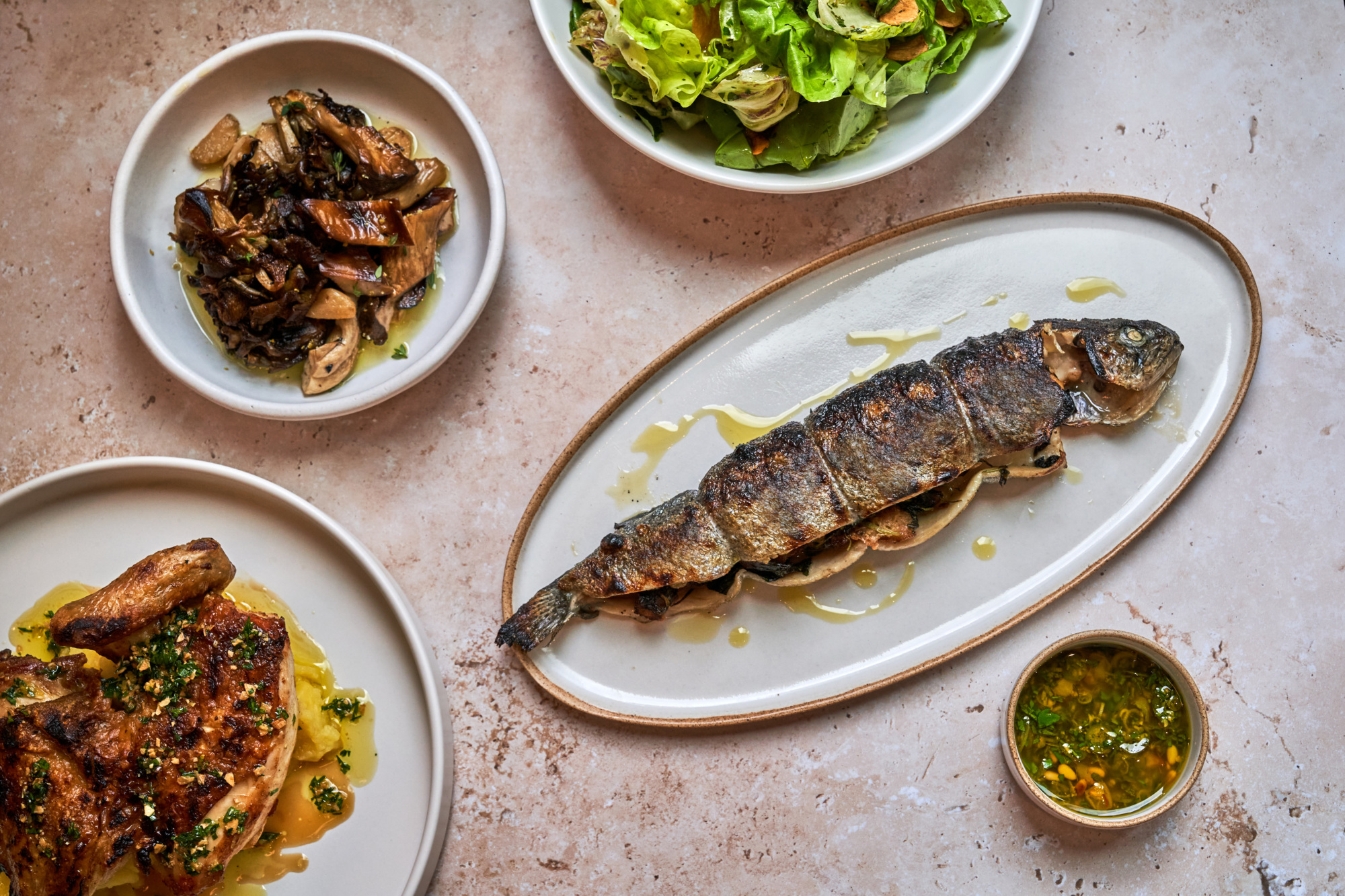
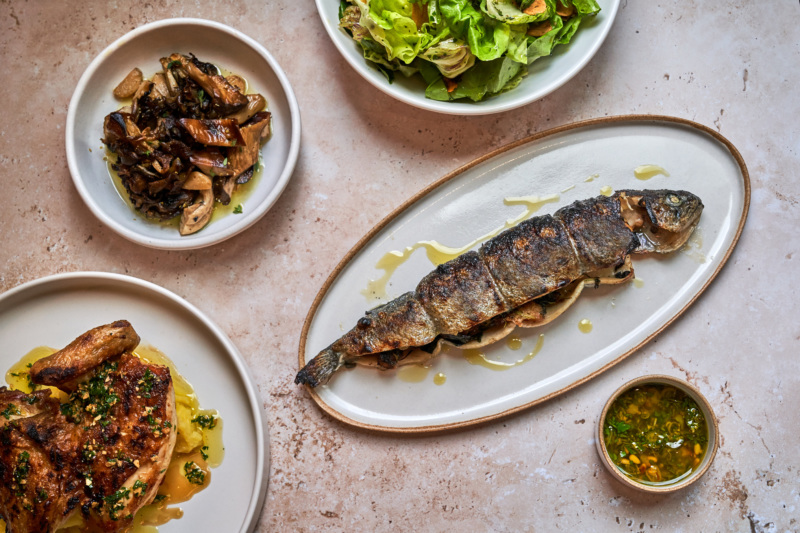
What does it mean for you to be a woman in the still very male-dominated restaurant industry today?
For me, I think we’re all just chefs in the room, regardless of gender. I think that it’s really great to see the next generation of women being introduced to this and building their careers — that’s the most important thing. Helping other women is also so important to me; we need to keep helping and learning with each other so we can grow this industry. The restaurant industry, like many other industries, is still very male-dominated.
It’s about letting the industry grow with us, and not stereotyping us in the end. We should all help and promote each other regardless. A lot of women already do those things — that’s what we do. It’s so important that we all work together to help each other, build each other, and develop each other.
I’m staring at another [woman-led] restaurant right now [Zou Zou’s] and it’s so great to have a relationship with them across the street. We are a team. This is a team sport — this whole industry should be a team sport. We should be helping build up each other and all leading by example, and putting the old restaurant ways of doing things away; we need to let the industry grow and modernize and we need people to be a part of it, and to be heartfelt and warm and personable.
We need to make sure that we are teaching others. Chefs are teachers. We’re artists who are creators and if we don’t share this love that we have with the younger generation — why we love it and why we love that dance every night — it’s hard to translate that. It’s hard to do that unless you are in it every day.
In your career as a chef, have you felt the impact of the gender gap in the restaurant industry?
I’ve definitely worked in kitchens when I was younger that were all male dominated and very different and difficult; you definitely felt alone in those places where, especially as a young cook, you want the person next to you teaching you and helping you. Especially when you go to a new kitchen in New York, it’s so competitive and intimidating at the same time. It took awhile to show the guys to the right and left of me that I could cook and that we had each others’ backs. There were different times and kitchens years ago where I didn’t feel supported sometimes by my fellow cooks, being one of the very few women in the kitchen in some kitchens I worked in.
In this kitchen [at Ci Siamo], if you don’t help the person to the right and left of you, you won’t make it — it’s so important that we help each other. Italian food is so soulful, meaningful, and personal — so it’s really important that we support everyone. If the cooks are happy, then everything is going to be great. That’s something I speak about frequently. When we have new cooks, I want them to know they are a part of a team, and they are never alone. Let’s do this together. When people are nervous and not feeling the way they should when they are feeling supported, they won’t cook well, and the guests will suffer.
I’ve been called for numerous jobs because I was a box they needed to check. You don’t want to get a call like that — you want to get called because you’re a chef, and you’re creative, and you love what you do.
I know it’s personally very important for you to create a supportive and inclusive kitchen culture. How do you do that?
First and foremost, I want everyone to have safe and inviting work environments — anyone whoever they are, if they want to cook and learn— that’s all I care about. I have a lot of women in the kitchen right now — for the first time in a long time — and I’m so happy to teach them.
I always want to, essentially, find someone to take my job. It’s my job to train the teams to take my job. My job is to train someone to take my job. To have these women in the kitchen, fighting for the next sous chef or executive chef role — my job is to teach them to get there, whether it’s this kitchen or another kitchen. I love sharing my journey, travels, and my silly anecdotes the kitchen.
I want a safe environment where everyone can work with people who respect each other — that’s a standard. There’s a zero-tolerance policy in my restaurant about derogatory remarks.
What do you hope for the next generation of women in the restaurant industry going forward?
I think to have more opportunities. To not just focus on being a female chef. I know that’s why we are here to talk about that. I just want to support people — it doesn’t matter what gender they are — we should support each other.
I’ve been called for numerous jobs because I was a box they needed to check. You don’t want to get a call like that — you want to get called because you’re a chef, and you’re creative, and you love what you do. I want people to not just be a box that they check; I want people to be excited about hospitality and serving guests. Why can’t I just be a chef, you know?
I mean I get it, but I also want to help people not be afraid. I think, honestly, the hardest part about being a chef is managing people and managing the expectations and the stress. I listened to a podcast series the other day about failures and if you think about that, we fail at something every day, that’s 100% for me. I think that for people in the restaurant industry to learn how to think fast and be goal-driven and roll with the punches, I think that’s a great education.
And for other LGBTQ+ restaurant workers — what do you hope for them as well?
I would love for them to, in general, have a safe work environment, and be welcome. That the labels are thrown out the window. There’s still some kind of old-school mentality — probably not on purpose and it’s just ingrained — and we just have to educate people that they can be whoever they want to be. We’re a big melting pot and mix of cultures and generations and people, and we need to be able to create those environments where it shouldn’t matter if you’re going through a transition, or if you’re gay or straight, either. We should be who we want to be, and to love who we want to love and if we can get the industry on board 100%, that would be an amazing thing.
Anything else you want to add or mention?
We did a dinner last night for a winery’s 50th anniversary and we had one long beautiful table, and it was really amazing to have 40 people in one room, bringing people together over wine and food and making these connections and forging relationships. That’s what we do here, and we want people to come together and share and enjoy and be a part of this. This is a great way to do it.
Throughout the month of June, Resy is celebrating the Women of Food around the world, with stories devoted to the women who power the restaurant industry.
Join Hillary Sterling at Ci Siamo on June 27th to celebrate The Women of Food, Resy’s nationwide dinner series and tribute to the women who make restaurants special. More info here.
Deanna Ting is Resy’s New York Editor. Follow her on Instagram and Twitter. Follow Resy, too.
Discover More
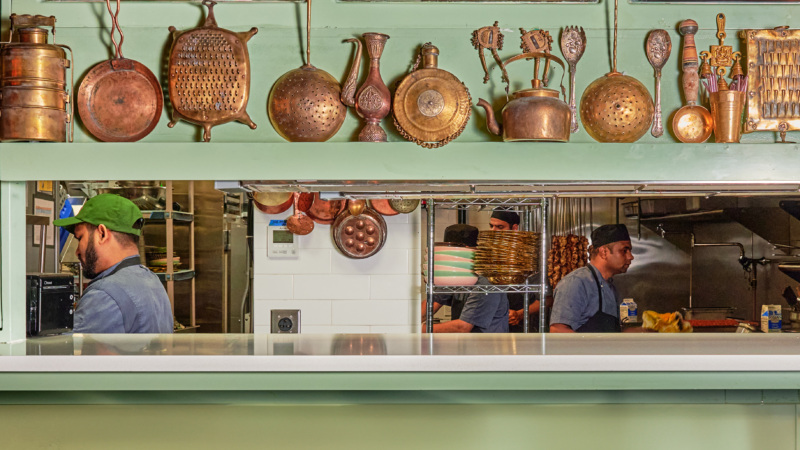
Stephen Satterfield's Corner Table


